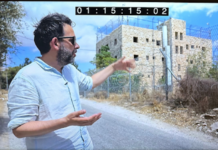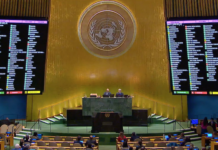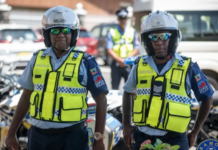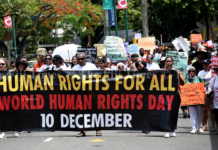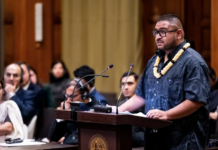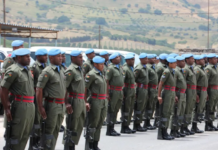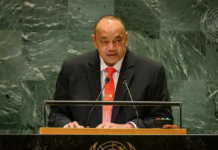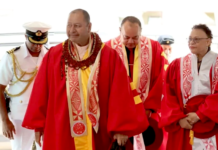Refugees and asylum seekers on Papua New Guinea’s Manus Island have suffered repeated violent attacks and robberies by locals, says Human Rights Watch. Video: HRW
Pacific Media Watch Newsdesk
Papua New Guinea has been condemned for violent mob attacks on people accused of sorcery – especially women or girls, repeated assaults and robberies on refugees, failure to address police brutality and corruption in the latest country report by Human Rights Watch.
The New York-based rights watchdog flagged a Madang trial that began in March of 122 people accused of killing five men and two children suspected of witchcraft and serial attacks on women.
Almost 40 percent of the country’s 8 million people live in poverty, and the government is far too reliant on religious groups and non-government organisations to provide charitable services for the economic and social rights of citizens.
Among other key points of the chapter in its annual world report:
• The government has not taken sufficient steps to address gender inequality, violence, excessive use of force by police;
• Rates of family and sexual violence are among the highest in the world, and perpetrators are rarely prosecuted; and
• Papua New Guinea has one of the highest rates of maternal death in the world.
‘Electoral violence’
Last August, Peter O’Neill was reelected as prime minister following an “election marred by widespread electoral irregularities and violence”, Human Rights Watch says.
“Soldiers and extra police were sent to the Highlands in response to fighting triggered by the election, where dozens of people, including police, had been killed in election-related violence.
“Refugees and asylum seekers on Papua New Guinea’s Manus Island have suffered repeated violent attacks and robberies by locals, with inadequate hospital care on the island and no action by police.”
The watchdog says that more than three years after the 2013 Family Protection Act was adopted, Parliament in May finally passed regulations to implement the law, which criminalises domestic violence and allows victims to obtain protection orders.
However, police and prosecutors “rarely pursue investigations or criminal charges against people who commit family violence” — even in cases of attempted murder, serious injury, or repeated rape — and instead prefer to resolve such cases through mediation and/or payment of compensation.
Police often demand money (“for fuel”) from victims before acting, or simply ignore cases that occur in rural areas.
There is also a severe lack of services for people requiring assistance after having suffered family violence, such as safe houses, qualified counselors, case management, financial support, or legal aid, the report says.
Violent mobs
Violent mobs attacked individuals accused of sorcery or witchcraft, particularly women and girls.
In March, a trial involving 122 defendants began in Madang. The defendants were charged in connection with the killing of five men and two children suspected of sorcery in 2014, Human Rights Watch says.
The prosecution alleged that the men raided a village in search of sorcerers to kill, armed with “bush knives, bows and arrows, hunting spears, [and] home-made and factory-made shotguns.”
No further details were available at time of the watchdog’s report regarding the trial’s progress.
Papua New Guinea has one of the highest rates of maternal death in the world. Just over 50 percent of women and girls give birth in a health facility or with the help of a skilled birth attendant.
Although the PNG government supports universal access to contraception, two out of three women still cannot access contraception due to geographic, cultural, and economic barriers.
Abortion remains illegal in PNG, except when the mother’s life is at risk.
Police abuse rampant
Police abuse remained rampant in Papua New Guinea, says Human Rights Watch.
In May, police detained and assaulted a doctor at a police roadblock on his way home in Port Moresby. The case triggered a public outcry, but no one had been charged for the offence at time of writing.
Few police are ever held to account for beating or torturing criminal suspects, but in December 2016, a mobile squad commander was charged with the murder of a street vendor, six months after the alleged offence occurred.
A court granted him bail in January 2017. In September, police charged a former police officer with the 2013 murder of two people in Central Province.
Despite the ombudsman and police announcing investigations into the 2016 police shooting of eight university students during a protest in Port Moresby, at time of writing no police had been charged or disciplined and neither body had issued a report.
About 770 male asylum seekers and refugees from countries including Afghanistan, Bangladesh, Burma, and Iran, live on Manus Island.
Another 35 or so have signed settlement papers to remain in PNG, although only four of these are working and financially independent.
Temporary living
About 70 are temporarily living in Port Moresby. All were forcibly transferred to PNG by Australia since 2013, says Human Rights Watch.
Australia pays for their upkeep but refuses to resettle them, insisting refugees must settle in PNG or third countries, such as the United States.
Refugees and asylum seekers do not feel safe on Manus due to a spate of violent attacks by locals in the town of Lorengau.
Local youths attacked refugees and asylum seekers with bush knives, sticks, and rocks and robbed them of mobile phones and possessions.
Police failed to hold perpetrators to account.
In April, soldiers fired shots at the main regional processing center, injuring nine people including refugees and center staff.






